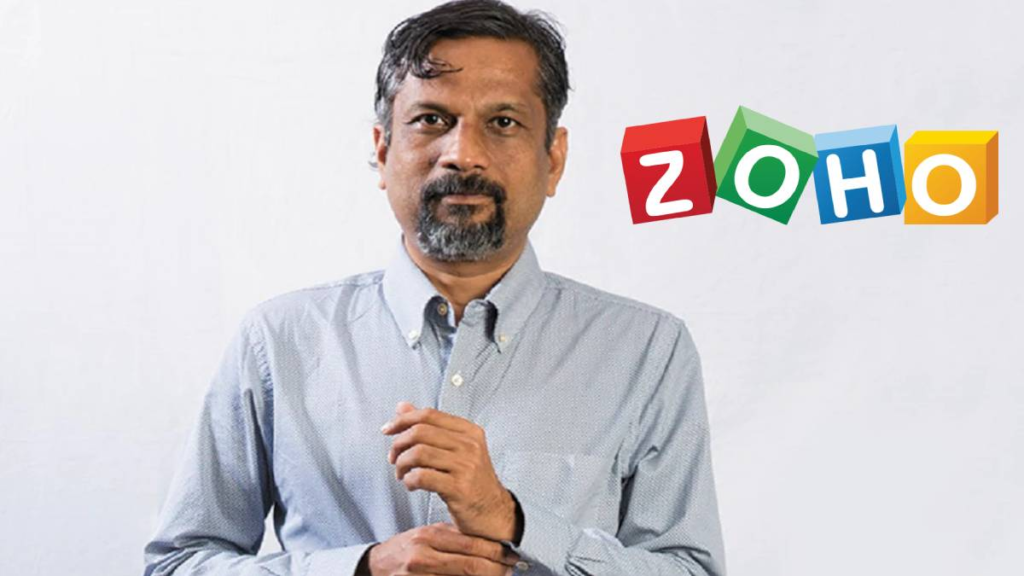Zoho: The Village Based Startup Defying the Odds

Introduction
In the vast landscape of startups, there is one that stands out among the rest. Meet Sridhar Vembu, the man behind Zoho, India's most profitable startup. What's remarkable is that Zoho is thriving despite being based in a village, far removed from the bustling tech hubs of the world. In this blog, we will delve into the incredible journey of Zoho and learn valuable lessons from Sridhar Vembu's entrepreneurial success.
The Birth of a Visionary
Sridhar Vembu was born and raised in a small village in Tamil Nadu, India. Coming from a family of farmers, he was the first person in his family to graduate from college. After obtaining a degree in electrical engineering from IIT Madras, he pursued a PhD at Princeton University. However, Vembu quickly realized that traditional education didn't align with his passion for hands-on learning and practical knowledge.
After a brief stint in the corporate world, Vembu and his brother decided to start their own company. They founded AdventNet in 1996, with the initial plan of building hardware. However, they soon pivoted to software development due to financial constraints. This decision turned out to be a game-changer for Zoho's future success.
Lessons from the Zoho Journey
1. Embrace Continuous Learning
Vembu's journey teaches us that knowledge cannot be confined to textbooks alone. He pursued self-learning, conducting research at libraries and constantly seeking new sources of knowledge. This thirst for learning allowed him to develop a deep understanding of his field and adapt to changing market dynamics.
2. Clear Vision is Key
A successful business requires a clear vision. Vembu understood the importance of knowing what to do, when to do it, and how to do it. Zoho's success can be attributed to Vembu's unwavering vision and strategic decision-making.
3. Master Your Craft, But Don't Neglect Business Skills
Vembu recognized that being an expert in his field was not enough to build a successful business. He understood the importance of acquiring business skills such as marketing, sales, finance, and management. This realization led him to hire professionals who complemented his technical expertise, enabling Zoho to thrive.
4. Adapt and Evolve
In the ever-changing business landscape, adaptability is crucial. Zoho's success lies in its ability to adapt to market demands and customer needs. By consistently launching new products and staying ahead of the curve, Zoho has remained a dominant player in the industry.
5. Find Opportunities in Challenges
One of the most valuable lessons from Zoho's journey is the ability to find opportunities in the face of challenges. When 80% of Zoho's clients disappeared during the dot-com bust, Vembu took the opportunity to focus on research and development. This decision led to the creation of new products and paved the way for Zoho's continued growth.
Zoho's Unique Approach
Zoho's success can be attributed to its unique approach to business. The company focuses on providing low-cost solutions, leveraging geoarbitrage by sourcing talent from low-cost regions like India. This allows them to offer affordable software to small businesses, filling a gap in the market left by larger competitors.
Zoho's commitment to its customers is evident in their freemium model, allowing users to try their software before making a purchase. Additionally, Zoho relies heavily on referrals and channel partnerships rather than expensive marketing campaigns. This customer-centric approach has resulted in a loyal customer base and low attrition rates.
Investing in People and Communities
One of Zoho's core values is investing in people and communities. The company operates Zoho University, where they provide intensive training to individuals from non-traditional educational backgrounds. By nurturing local talent and providing employment opportunities in rural areas, Zoho is making a positive social impact.
Zoho's commitment to its employees is also evident in its company culture. They prioritize work-life balance, offering amenities such as playgrounds, nap rooms, and free meals. During challenging times like the COVID-19 pandemic, Zoho prioritized employee well-being and ensured that no one was laid off.
The Future of Zoho
Zoho has ambitious plans for the future. They aim to increase their presence in the Indian market and expand employment opportunities in rural areas. By tapping into the talent pool of small villages, Zoho hopes to create economic opportunities and bridge the urban-rural divide.
Conclusion
Zoho's incredible journey serves as an inspiration to aspiring entrepreneurs. Sridhar Vembu's story teaches us the importance of continuous learning, clear vision, adaptability, finding opportunities in challenges, and investing in people. Zoho's success is a testament to their customer-centric approach and commitment to making a positive impact on society.
If you're looking to start your own business, remember the lessons from Zoho's journey. Embrace continuous learning, develop a clear vision, invest in your business skills, adapt to change, and find opportunities in challenges. By following these principles, you can defy the odds and create a successful startup, just like Zoho.
Remember, success is not limited to the big cities and flashy tech hubs. With determination, innovation, and a customer-centric approach, you can build a thriving business from anywhere, even a small village.
